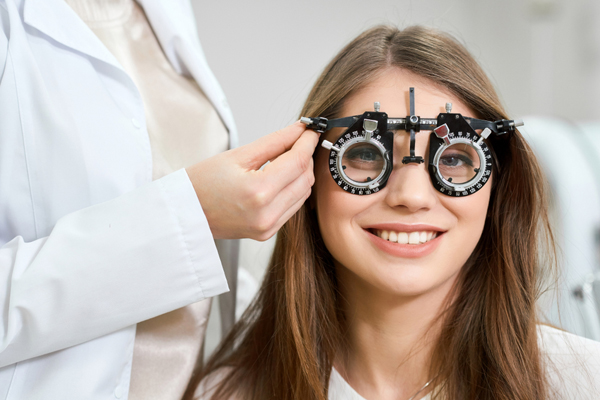From An Eye Doctor: Why You Should Never Stare Directly at the Sun

Most people do not need an eye doctor to tell them to not stare directly at the sun. In fact, the human eye is too sensitive to stare at the sun for long, and if a person tries, they will instinctively turn away to prevent long-term damage. However, there are certain solar events, such as solar eclipses, that make it possible to look at the sun without that reflexive turning. When the moon moves in front of the sun, it becomes much easier to stare at it. However, that does not mean anyone should do it, as staring at the sun for any length of time can cause severe and irreversible eye damage.
The consequences of staring at the sun
It may seem hard to understand how the sun — which is 93 million miles away — can cause so much damage in just a few seconds. Scientifically speaking, once the ultraviolet rays from the sun enter the eye, they go directly to the retina. The retina, residing in the deepest part of the eye, is highly light-sensitive. Once the retina absorbs the UV rays, free radicals form. These free radicals begin to oxidize and eventually destroy the tissue in the eye.
When described in laymen's terms, it is easier for one to understand how damage may occur. Think a magnifying glass that a child might use to burn holes in a piece paper. When the rays of the sun focus on one single point, they create a lot of energy. The eye's lens is about four time as powerful as that of a typical magnifying glass. When you take a lens that is that powerful and point it directly at the sun, it creates energy strong enough to literally burn a hole in the retina.
Eye doctors who have seen patients with eye damage caused by the sun — otherwise known as solar retinopathy — describe the damage in more or less the same way. Many say that the damage looks as if someone took a hole punch and punched out the center of the retina.
Symptoms of retinopathy and when to see an eye doctor
Signs of eye damage caused by the sun do not present themselves right away. For many people, the symptoms do not begin to develop until up to 12 hours after the incident. Symptoms of retinopathy include the following:
- Eye soreness
- Headaches
- Watery eyes
- Difficulty looking at bright lights
- Difficulty discerning shapes and distortion
- Decreased ability to see color
- Blurred vision
- One or several blind spots in the center of one's vision
A person should visit an eye doctor upon the development of any of these symptoms. Even if solar retinopathy is not a concern, some other eye condition likely exists and may need immediate attention.
Conclusion
Staring at the sun for any length of time can have serious and irreversible consequences. For this reason, one should never look directly at the sun. If you suspect you have solar retinopathy, contact an eye doctor right away.
Request an appointment here: https://brighteyesmv.com or call Bright Eyes Optometry at (914) 668-1429 for an appointment in our Mt Vernon office.
Check out what others are saying about our services on Yelp: Read our Yelp reviews.
Recent Posts
Emergency eye care is needed if you find yourself dealing with a problem with your eye that causes pain or affects your vision. Failing to treat eye injuries as soon as they are detected can lead to permanent consequences, like reduced vision or blindness. Common eye injuries that require emergency eye care include: Exposure to…
Looking for more information on eye protection? An ophthalmologist knows everything there is to know about protecting the eyes. While there are a few different types of eye care professionals, ophthalmologists are eye care professionals who have undergone additional years of education and training so they can offer their patients both medical and surgical eye…
Controlling myopia at an early age can slow down its progression. This can help prevent yearly upgrades for stronger glasses. Your optometrist can help by offering various treatments. If you want to find out how your optometrist can help control myopia, here are the details.Optometrists use atropine eye drops to achieve short-term myopia control results.…
Another word for an itchy eye is ocular pruritis. It is a common health situation in many people. Itchiness in your eyes is more than enough reason to see an optometrist. Receiving prompt treatment is important in receiving prompt relief. If you want to know what causes an itchy eye and the treatments for it,…



